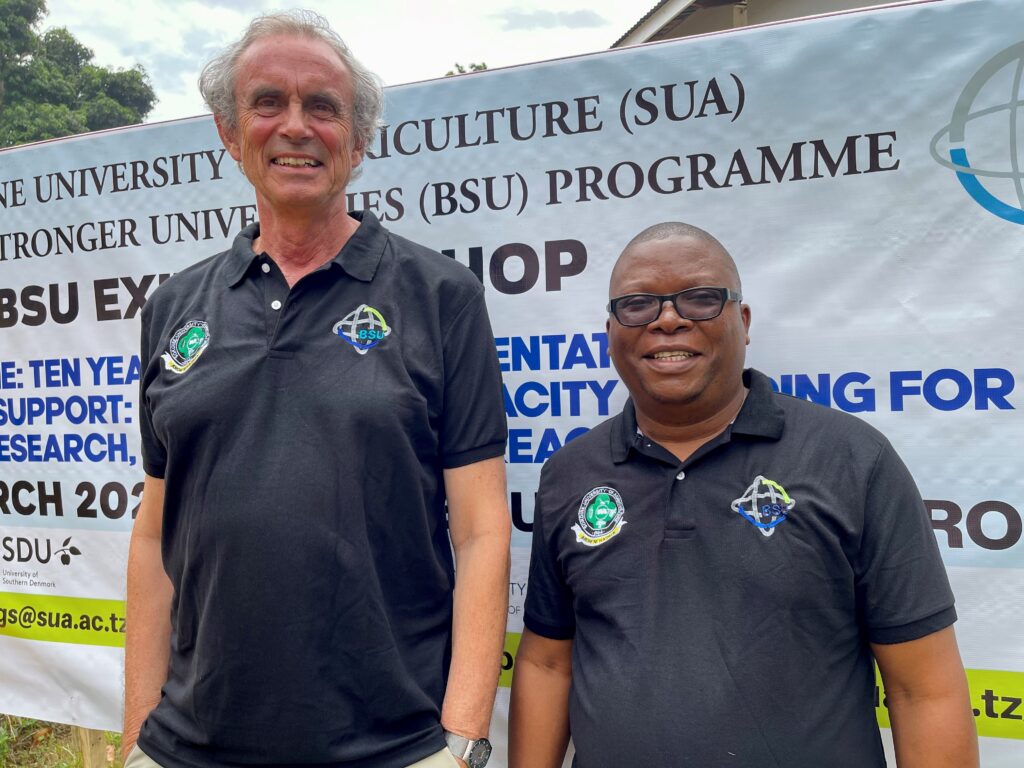Sokoine University of Agriculture’s citation ranking got boosted. A BSU story of change
12-01-24

RESUME: It is almost impossible for young would-be researchers to get funding when they have to compete with experienced researchers. In the first phases of the Building Stronger Universities (BSU) at Tanzania’s Sokoine University of Agriculture some were fortunate to be selected to join pilot projects. Such opportunities first dried up during BSU3 until the team realized that young inexperienced researchers still needed support. Then the university established a fund specifically for them. The ensuing increase in research activities has been remarkable. In January 2022, SUA had a total of 111,886 citations in Google Scholar profiles and thereby ranked first among Tanzanian universities. The year before, in January 2021, the figure was 89,752. This can hardly be a coincidence!
By Anthony Sangeda, Associate Professor and Deputy Principal, College of Agriculture, Sokoine University of Agriculture
Way back in 2015, a few young researchers at Tanzania’s Sokoine University of Agriculture (SUA) benefited from research funds to carry out small research projects, so-called “pilot projects”, under the Building Stronger Universities (BSU) programme. The BSU programme’s focus was institutional capacity building and the pilot projects provided an important entry point for young researchers, giving them the opportunity to work with and learn from senior researchers. Accessing research funding has always been a nightmare for the young generation of new graduates as most calls target people with advanced skills in research and experience in publications. So when pilot projects for young researchers at master’s level were advertised under BSU2 many young scholars at SUA applied and the competition was stiff.
The best applicants were awarded research funding amounting to USD 9,000 for a period of two years. About 13 scientific papers were produced from the six selected pilot projects and findings were used to write concrete research proposals some of which were funded. A good example of a funded research proposal is the Management of noxious Kongwa weeds in Central Tanzania. It was funded by COSTECH, the Tanzania Commission for Science and Technology, and run by SUA researchers in collaboration with Aarhus University. Three MSc students were recruited to work on the project.
Pilot projects were implemented mainly in the first two phases of BSU. In the third phase (BSU3) most of the thematic areas recruited PhD and MSc graduates and this shut out young would-be researchers once more. Realising that this had created a bottleneck, half way through BSU3 SUA initiated the establishment of a special fund – SUA Research and Innovation Support (SUARIS) – to provide research grants to early career researchers/junior academic members of staff not older than 45 years. These included graduates with Master’s degrees gained not more than three years earlier or PhD degrees gained not more than five years earlier. The young researchers are encouraged to widen the scope of their research activities so that their results can be meaningfully applied in the social and economic development of society.
Who would have guessed that SUARIS would be the way to go for SUA young researchers. Three batches, a total of 75 young researchers, have benefited from SUARIS since 2020/2021. The budget for 2022/2023 was set at Tsh 1,000,000,000/= from internally generated funds. In February 2023, 27 young researchers with successful research proposals were awarded an average of Tsh. 30,000,000/= each for the next two years.
In January 2022, SUA had a total of 111,886 citations in Google Scholar profiles and thereby ranked first among Tanzanian universities. In January 2021, the figure was 89,752. This can hardly be a coincidence!
Edited by Kate Girvan
Go back to our stories
